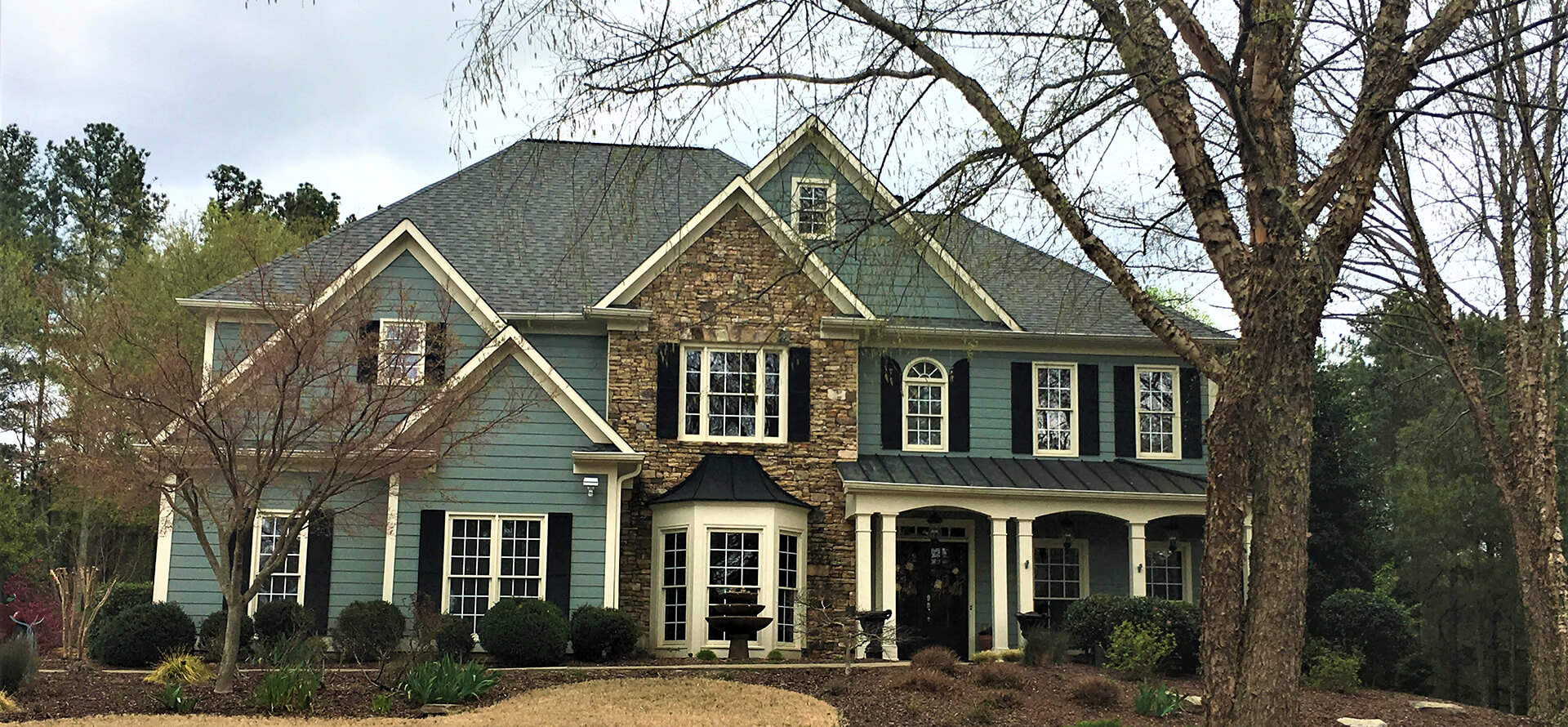Summer weather can present several challenges and potential problems for your roof. While it may not be as immediately threatening as severe winter weather, summer conditions can still have a significant impact on the integrity and performance of your roof. By understanding the effects of summer weather on your roof and what to do about it, you can help keep your home protected in every season.
Summer Weather: The Impact on Your Roof
It’s not just big snowstorms that can affect your roof’s durability. Even in the summer, you have to remember that your roof is dealing with:
Heat Stress
Intense summer heat can cause roofing materials to expand and contract, leading to thermal stress on the roof structure. This repeated expansion and contraction can weaken roofing materials over time, potentially causing cracks, warping, or deterioration.
UV Radiation
Prolonged exposure to ultraviolet (UV) radiation from the sun can degrade roofing materials, particularly asphalt shingles. UV rays can cause shingles to become brittle, fade, or lose their protective coatings, which can shorten their lifespan and compromise their ability to protect your home.
High Temperatures
Elevated temperatures during the summer months can increase the temperature of the roof surface, leading to discomfort inside the home and potentially higher cooling costs. Heat buildup in the attic can also contribute to moisture-related issues and reduce the effectiveness of insulation.
Storm Damage
Summer storms, including thunderstorms, hurricanes, and high winds, can cause significant damage to roofs. High winds can lift or loosen shingles, blow debris onto the roof surface, or even tear off entire sections of roofing material. Heavy rainfall associated with summer storms can also lead to water infiltration and roof leaks if the roofing system is compromised.
Debris Accumulation
Trees shedding leaves, branches, or other debris onto the roof can contribute to clogged gutters, valleys, and roof drains. Accumulated debris can trap moisture, block drainage pathways, and create conditions conducive to water damage or roof deterioration.
Humidity and Moisture
Summer humidity levels can create conditions for mold, algae, or moss growth on the roof surface, particularly in shaded areas or regions with poor ventilation. Excessive moisture buildup can lead to rot, decay, or the development of leaks, compromising the structural integrity of the roof.
Protecting Your Roof in the Summertime
To protect your roof from the challenges posed by summer weather, here are some proactive steps you can take:
Regular Inspections
Conduct routine inspections of your roof to check for any signs of damage, such as missing or damaged shingles, cracks, or leaks. Look for areas where debris may have accumulated and clear them away to prevent water buildup.
Trim Trees
Trim overhanging tree branches that could potentially fall onto your roof during summer storms. Falling branches can cause significant damage to roofing materials and increase the risk of leaks or structural issues.
Clean Gutters and Downspouts
Keep gutters and downspouts free of debris, such as leaves, twigs, and dirt, to ensure proper drainage during heavy rainfall. Clogged gutters can lead to water backup, which can damage the roof and cause water infiltration into the home.
Check Flashing and Sealants
Inspect the flashing around chimneys, vents, skylights, and other roof penetrations for signs of damage or deterioration. Replace any damaged flashing or sealants to prevent water intrusion and ensure a watertight seal.
Maintain Ventilation
Check that your attic and roof have adequate ventilation to prevent heat buildup and moisture accumulation. Proper ventilation helps regulate temperature and humidity levels, which can reduce the risk of roof damage caused by thermal stress and moisture-related issues.
Address Storm Damage Promptly
If your roof sustains damage during a summer storm, such as missing shingles or roof leaks, address the issues promptly. Temporary repairs may be necessary to prevent further damage until permanent repairs can be made.
Apply Roof Coatings
Consider applying a reflective roof coating to your roof surface to help reduce heat absorption and UV damage. Roof coatings can extend the lifespan of roofing materials and improve energy efficiency by lowering cooling costs.
Don’t Let the Weather Destroy Your Roof!
While summer weather may not pose as immediate a threat to your roof as winter weather, it’s essential to remain vigilant and proactive about roof maintenance year-round. By following these proactive measures and staying vigilant about roof maintenance, you can protect your roof from the damaging effects of summer weather and ensure its longevity and performance for years to come.
Don’t wait until it’s too late to get a roof inspection! Contact us today to schedule a free estimate. At Silver Leaf Contracting, we serve those in Massillon, Canton, and the surrounding communities in OH.
















